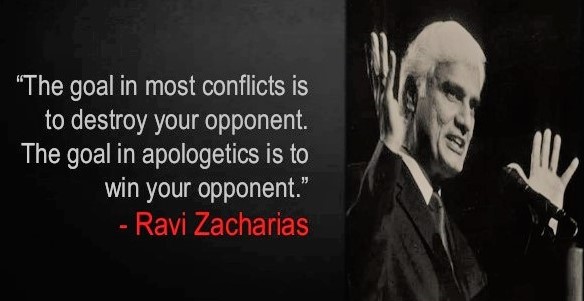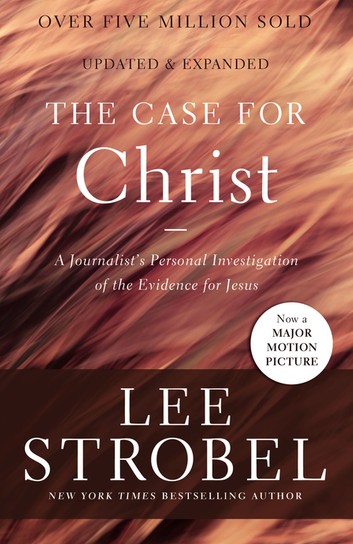Do you still remember how you came to faith in Christ? God must have used somebody to share the good news of salvation with you. Was it a friend, a colleague, or a family member? Regardless of who that might be, now that you have received God’s gift of salvation, it’s your turn to share it with others.
But why should you do that? Why share the good news? It’s because all followers of Christ are to be His witnesses. Every Christian is commanded to “go into all the world and preach the gospel to every creature” (Mark 16:15).
However, fulfilling this mandate known as the Great Commission can be a real challenge to every follower of Jesus.
So in this article, I am going to share some guidelines or techniques on how to effectively witness for Christ.
Preach the Gospel
Does Mark 16:15 (quoted above) mean that every Christian must become a pastor or a preacher and speak from a pulpit or platform in order to proclaim the good news of salvation? Of course not!
To “preach” does not necessarily mean to deliver a sermon to an assembled group of people. We simply have to reach out to the lost and introduce the gospel to them. And like I said, this was a command (from Jesus), not a suggestion.
Did you know that this command was not obeyed immediately? Jesus’ disciples stayed in Jerusalem for many years after the church was born at Pentecost. It was only when the persecution started that Christianity began to spread to the world. And when it did, it spread robustly and continues to.
The more the church was persecuted, the faster the gospel propagated.

Important Note:
In many Bibles, Mark 16:9-20 is footnoted in some way because apparently, it did not exist in the earliest Greek manuscripts of the gospel of Mark.
Although the vast majority of later manuscripts include this passage, the two oldest and most respected manuscripts the Codex Vaticanus and Codex Sinaiticus (dated from 325 and 340 A.D.) do not contain this section. A few ancient manuscripts put asterisks next to Mark 16:9-20 to indicate that it is an addition to the original text.
Nevertheless, many very early Christians referred to this passage in their writings, which shows that they accepted it as genuine. But whether this portion of Mark’s gospel was written by Mark or was added later on by scribes, it is important to note that it offers no new information, nor does it contradict previously revealed events and/or doctrines.
Why Should Christians Share Their Faith?
Aside from the fact that God has commanded us to do so, we share our faith as a demonstration of our love for God. Jesus said that if we truly loved Him we should keep His commandments (John 14:15).
Christians must also share their faith because all are lost (Romans 3:10, 23) but God desires to save all people (Acts 4:12, 2 Peter 3:9; 1 Timothy 2:4). Sharing our faith in God’s chosen method to tell all people what Christ has done at Mount Calvary for the forgiveness and salvation of man.
God could have used angels but He didn’t. It’s because only redeemed sinners can tell lost sinners about Christ (Romans 10:14-17; Acts 8:13).
We must share our faith because someone once shared their faith with us. It may have been a faithful Bible teacher, or a godly pastor, or a praying parent. In other words, they have the right to expect that we will do for others what they have done for us.
Effective Witnessing Techniques
1. Be a clean vessel for God.
First, to be an effective witness for Christ, we must be clean vessels. God reminds Isaiah the prophet of this, “Be clean, you who bear the vessels of the Lord” (Isaiah 52:11). We cannot expect to share our faith successfully if we are deliberately living in sin and disobedience to God.
We must confess our sins to God and forsake them, then yield our lives completely to God. Although God does not demand golden or silver vessels, He does require clean ones. (Notice that God used and continues to use imperfect people.)
2. Pray, pray, pray.
Prayer is very important if we are to be effective soul-winners for Christ. Before we even attempt to evangelize, we pray not only for the blood covering of Jesus upon us because we will be engaging in a spiritual battle but also for God to open doors so we can proclaim the gospel.
We must pray that God will lead us to the people He wants us to share the gospel with; we pray that God will open their hearts to receive the gospel.
When Paul and Barnabas returned to Antioch in Syria from speaking to great multitudes at Iconium and Lystra, passing through Pisidia, Pamphylia, Perga, and Attalia, they gathered the church together and reported all that God had done through them and how He had opened a door of faith to the Gentiles (Acts 14:27).
We also read in Colossians 4:3-4 that Paul asked the brethren to pray for him and his companions so that God will open a door for the message of the gospel, and for him to proclaim it clearly as he should.
3. Be totally dependent upon the Holy Spirit.
Before His ascension, Jesus gave a specific instruction to His disciples to not leave Jerusalem but to wait for the Holy Spirit to come upon them and empower them to become His witnesses not only in Jerusalem, in all Judea and Samaria, but also to the ends of the earth (Acts 1:4, 8).
We must acknowledge that we cannot be effective witnesses for Christ without the Holy Spirit to work on our behalf. We can do nothing without God and this includes soul-winning. We do not know the right words to say; many of us may be timid and are not eloquent speakers.
But God did not only promise that He’d give us the courage to speak, but He’d also give us the words to proclaim.
The apostle Paul, who used to be a zealous Jew taught by Gamaliel, said to the church in Corinth in his first letter that he knew nothing except Jesus Christ and Him crucified. He then went on to say that he was proclaiming his testimony about God to them not with wise and persuasive words, but with the demonstration of the Spirit’s power (1 Corinthians 2:1-5).
On the day of Pentecost, Peter preached the most powerful sermon ever that led to the conversion of 3,000 souls in one day. How did he do that? The Holy Spirit enabled him.
These two instances in the ministry of Paul and Peter clearly illustrate that without the empowerment of the Holy Spirit, we cannot possibly share the gospel effectively.
One side note: It’s not your job to convert people to Christ. Your job is to share the Gospel. So do your job of sharing the gospel and allow the Holy Spirit to do His job of convicting.
4. God is patient with lost sinners.
One other thing we need to keep in mind is that God does not want anyone to perish, but for everyone to come to repentance (2 Peter 3:9).
The leaders of Israel had rejected the ministry of John the Baptist and the ministry of Jesus, yet God gave them another opportunity to repent and be saved. They had denied and slain their own Messiah, yet God patiently held back His judgment and sent His Spirit to deal with them.
God’s people today need patience as they witness to a lost world.
Had there been times when you lost patience with someone you’re witnessing to because it looked like it wasn’t working? Let me just say that whenever you’re tempted to lose patience with the lost and want to give up, remember how God has been patient with you up until today.
Now, the question you may want to ask is: At what point should we stop trying to convince someone their need of a Savior? If after repeatedly sharing with them the bad news (we are all sinners) and the good news (Christ paid for our sins by His suffering and death) but they’re not interested, I believe it’s time to move on to the next person on your list.
Matthew 7:6 says, “Do not give what is holy to the dogs; nor cast your pearls before swine, lest they trample them under their feet, and turn and tear you in pieces.” In other words, we should not shove the gospel down the throats of people who do not want it; they will just continue to mock God and His Word.
5. Learn to do basic Apologetics.
One of the most effective tools in witnessing is apologetics, from the Greek word apologia, meaning to give a defense.
We first read this word from Peter when he said in his epistle, “But sanctify the Lord God in your hearts, and always be ready to give a defense to everyone who asks you a reason for the hope that is in you, with meekness and fear” (1 Peter 3:15).
In short, apologetics is the science and art of defending the Christian faith by using reasons and evidence.
When Peter and John were brought before the rulers, elders, scribes and priests, (including Annas the high priest), and was asked in what power or by what name has he been performing miracle healings, Peter implored apologetics. He gave a clear defense of the gospel by declaring to them the fact of Jesus’ death and resurrection (Acts 4:5-14).

Can you give an answer as to why you’re a Christian? Why do you believe Christianity is true? What’s your basis in claiming that the Bible is God’s Word? You do not have to attend seminary school, but as a Christian, you must be able to explain why you believe what you believe.
I often hear many Christians (including pastors) say this to non-Christians: “Just believe.” And I’m like, “What? Seriously?” Haven’t these Christians read how Jesus gave evidence for His claim of divinity by performing miracles? He did not just claim to be God by attributing to Himself God’s name (I Am); He did many miracles to prove it. The climax being His resurrection!
Christianity hinges on the fact of Jesus’ resurrection and the historical evidence for the resurrection is very strong and compelling. This alone should be enough to give Christians confidence that they did not believe in vain.
6. Learn Polemics
Polemics is a strong verbal or written attack on someone or something.
Polemics is the other side of apologetics. If apologetics is defense, polemics is offense. As Jay Smith always says, “The best defense is a good offense.” In basketball, you don’t win the game just by defending the goal; you win by attacking the basket and scoring against your opponent.
This is not only true in the game of basketball or soccer, but also in witnessing.
While in Thessalonica, it was Paul’s custom to go into the synagogues of the Jews for days, months, and even years, to argue and reason with them persuasively from the Scriptures about the kingdom of God. He would explain and prove that the Messiah had to suffer and rise from the dead (Acts 17:1-3; 19:8-10).
Do you see what Paul had been doing? He’s on the attack! He did not just wait for the Jewish religious leaders to question him; he went to them and proclaimed the suffering, death, and resurrection of the Lord Jesus.
So how and where do you begin? You can start the conversation by asking what they believe about life and death, or heaven and hell. Ask them where they think they will go should they die today and why.
7. A changed life is the best defense of the truth of Christianity.
In his evangelistic ministries, Methodist preacher Samuel Chadwick used to pray for “a Lazarus” in every campaign, “some great sinner” whose conversion would shock the community. He got the idea from John 12:9-11.
God answered his prayers in meeting after meeting as infamous wicked individuals trusted Christ and became witnesses through their changed lives.

This is Paul’s exhortation for all Christians in Ephesians 5:1-2, “Therefore be imitators of God as dear children. And walk in love, as Christ also has loved us and given Himself for us, an offering and a sacrifice to God for a sweet-smelling aroma.”
You may have heard this exhortation from most pastors about living the faith as followers of Jesus. “Be careful how you live your life because you may be the only Bible unbelievers will ever read.”
Concluding Words
When the disciples asked Jesus what are the signs of His coming and the end of the age, He said to them:
“Watch out that no one deceives you. 6 Many will come in my name, claiming, ‘I am He,’ and will deceive many. 7 When you hear of wars and rumors of wars, do not be alarmed. Such things must happen, but the end is still to come. 8 Nation will rise against nation, and kingdom against kingdom. There will be earthquakes in various places, and famines. These are the beginning of birth pains.
9 You must be on your guard. You will be handed over to the local councils and flogged in the synagogues. On account of me, you will stand before governors and kings as witnesses to them. 10 And the gospel must first be preached to all nations” (Mark 13:5-10).
The end is near, the days are evil. Jesus is coming soon. Christians need to work double-time to witness to the lost.
The Great Commission still stands. Are you fulfilling it?
Recommended Resource: The Case for Christ, Revised & Updated: A Journalist’s Personal Investigation of the Evidence for Jesus by Lee Strobel
 Is there credible evidence that Jesus of Nazareth really is the son of God?
Is there credible evidence that Jesus of Nazareth really is the son of God?
Retracing his own spiritual journey from atheism to faith, Lee Strobel, former legal editor of the Chicago Tribune, cross-examines a dozen experts with doctorates from schools like Cambridge, Princeton, and Brandeis who are recognized authorities in their own fields.
Strobel challenges them with questions like: How reliable is the New Testament? Does evidence for Jesus exist outside the Bible? Is there any reason to believe the resurrection was an actual event?
In this winner of the Gold Medallion Book Award and two-time nominee for the Christian Book of the Year Award, Strobel’s tough, point-blank questions play like a captivating, fast-paced novel. But it’s not fiction. It’s a riveting quest for the truth about history’s most compelling figure.
The new edition includes scores of revisions and additions, including updated material on archaeological and manuscript discoveries, fresh recommendations for further study, and an interview with the author that tells dramatic stories about the book’s impact, provides behind-the-scenes information, and responds to critiques of the book by skeptics.
This updated edition will prove even more valuable to contemporary listeners.

